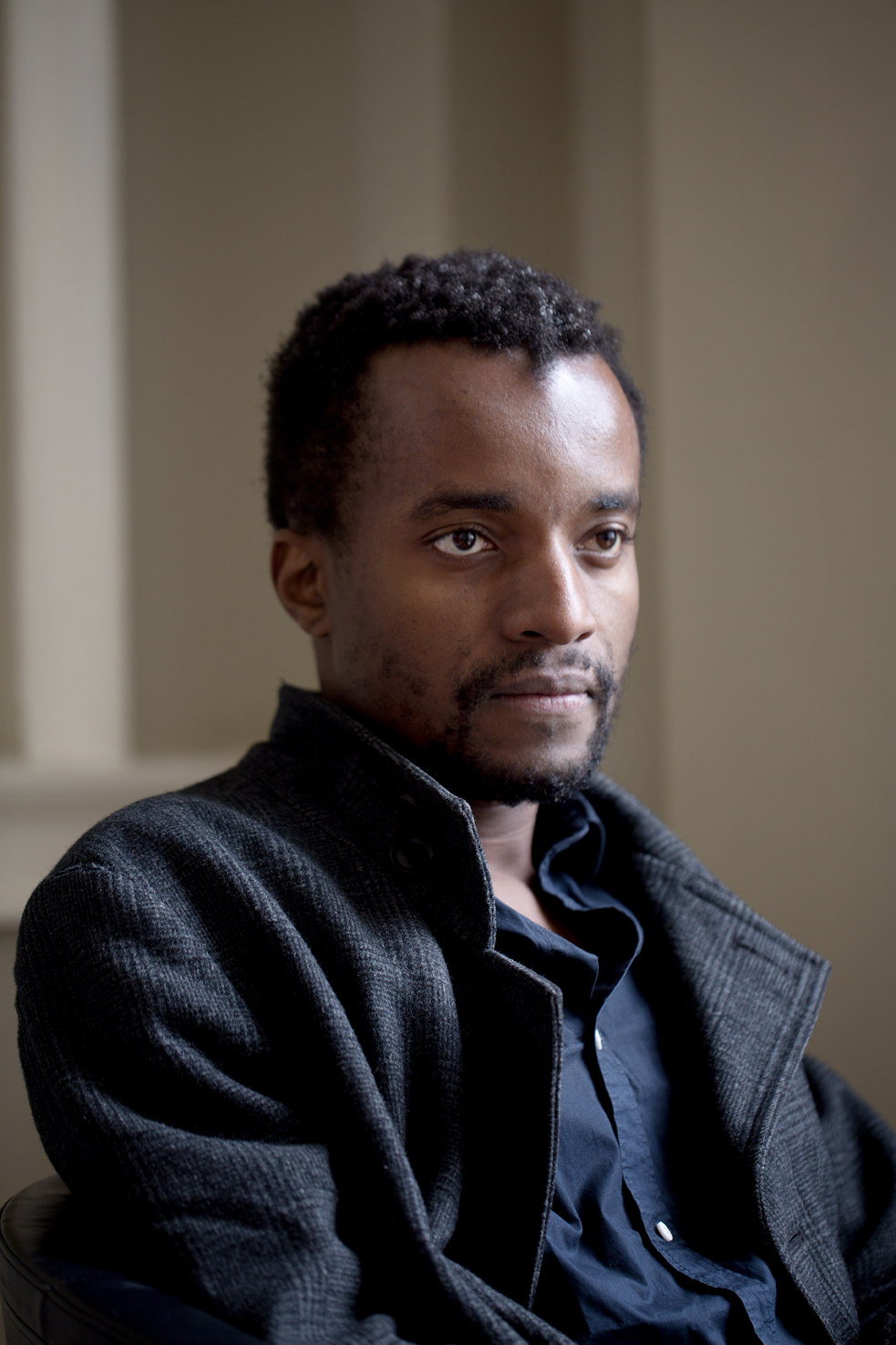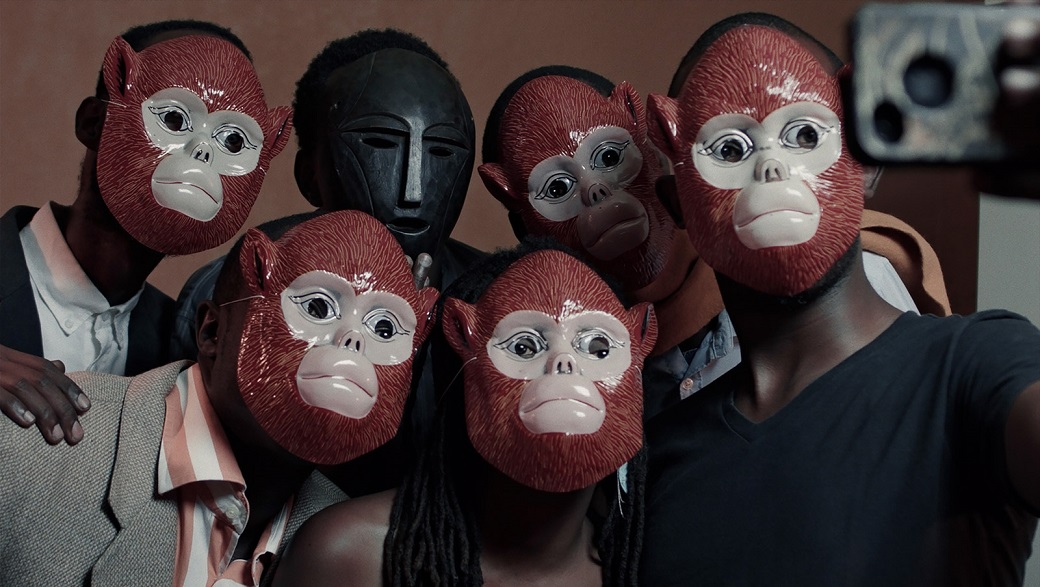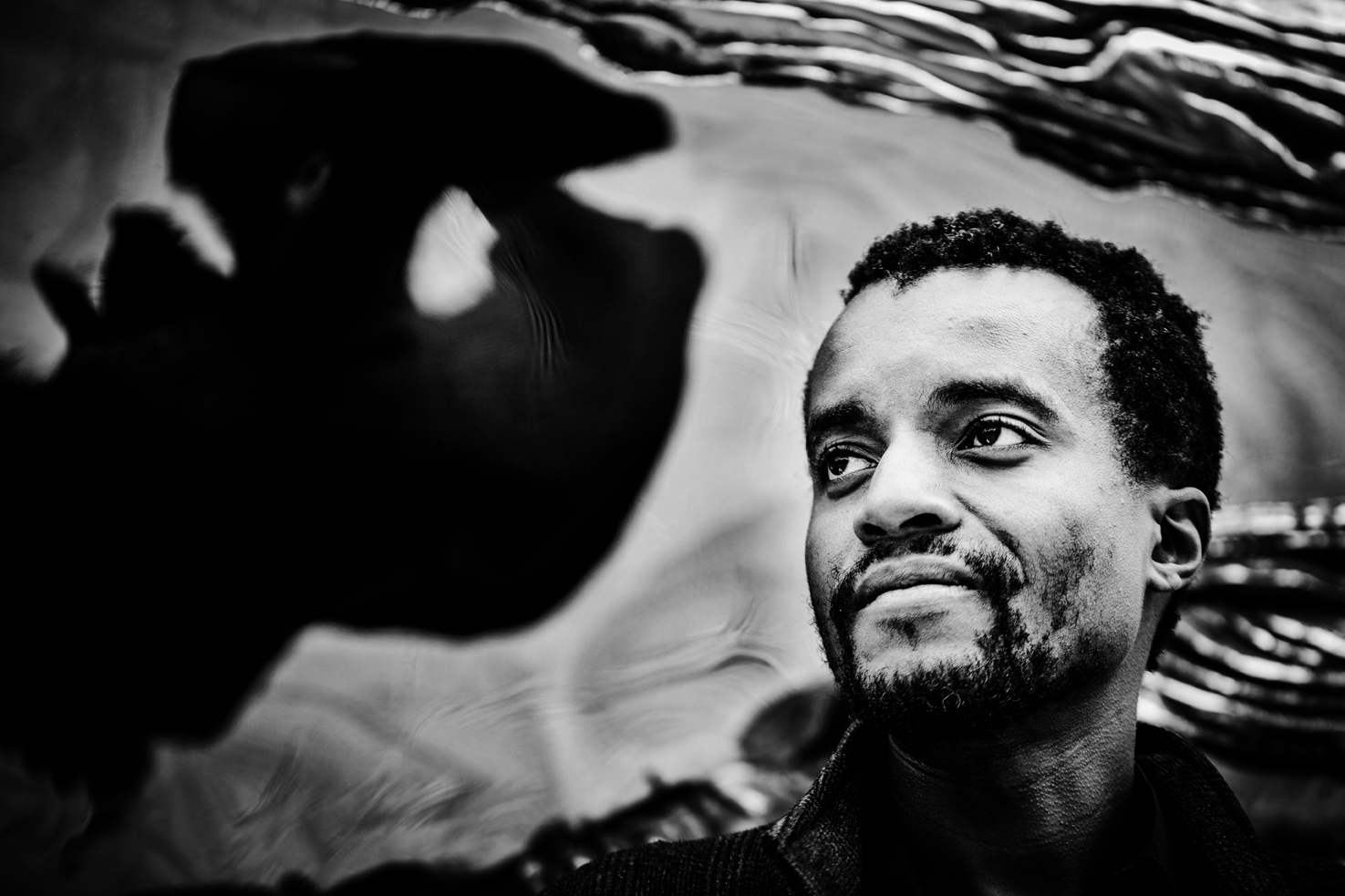‘Most struggling directors use journalists as their therapist. It’s not right.’ It’s one of the first things the Rwandan film director Kivu Ruhorahoza says as I arrive for our interview over lunch.
Turns out this is typical Kivu; deadpan humour that requires its audience to keep up. The director isn’t intending to confide his problems in me nor is he really struggling. According to most criteria, he’s successful. He’s won a litany of prizes which show how international and endless the film circuit is: his 2011 film, Grey Matter, won the Jury Special Prize of the Khouribga Film Festival in Morocco; an award at the Tribeca Film Festival in New York; been officially selected for the Sundance Festival; and screened at the Tate Modern as part of Olafur Eliasson’s Little Sun project. He’s also directed music videos for US rapper Saul Williams and the Rwandan spoken-word artist Eric 1key. And he’s only 32.
Most of his struggle comes from ensuring his vision remains uncompromised. He set up a film production company in order to make his current project, Things of the Aimless Wanderer. It’s an elliptical woozy film that swerves from easy definition. Although its succession of beautiful images makes it wholly accessible, you couldn’t imagine the Weinsteins snapping it up.
We’re in a hotel restaurant overlooking Somerset House, where the 1:54 African art fair is now being held, in the centre of London. He lives between New York, London and Kigali so I feel lucky to have caught him. When we order, he explains that he doesn’t eat red meat; a family history of gout, he explains very seriously. But he can’t resist coffee, in big quantities.
I only went to law school because I couldn’t study literature. Rwanda didn’t want poets and novelists.
He started his film career in 2004 under the guidance of the Rwandan filmmaker Eric Kabera. He got the job – after hassling him with texts and emails and phone calls – while still at university studying law. Although a year in, he was never intending to become a lawyer:
‘I was interested in the penal code but it very quickly became boring. I only went to law school because I couldn’t study literature. Rwanda didn’t want poets and novelists. They want lawyers and technicians and scientists to fix a severely broken country. So the only possibilities were law, economics and management. Law is a little more interesting and at that time I was reading John Grisham.’
It’s hard to work out if this is a joke. But the idea of Kivu sitting down to read John Grisham seems unlikely.
He dropped out of school and after working for Kabera for a few years as a personal assistant and production manager, and then organising festivals and running his production company, he left because he wanted to concentrate on his own projects. The short film Confession followed in 2007; Lost in the South, a short released in 2008; Rwanda 15, a documentary made with NYC saxophonist Jeremy Danneman (2009); Grey Matter in 2011; all this and an experimental horror short called Preproduction of a Feature on Madness.
His current release follows two men, one Rwandan, one a white American journalist, who both develop a fixation on a mysterious young woman. She then disappears. Although the film flirts with pretension, Kivu is surprisingly forthright about its meaning.
‘It’s a film about the difficult relationship between locals and ex-pats and it’s a film about patriarchy. You still have these handsome well-educated romantic adventurers who go around reporting on African countries, which they think they understand, but it’s not always true. There’s a lot of hostility towards them because they have a monopoly of opinion on the continent and there’s a lot of paranoia about their power.’
Kivu admits that social media has allowed others to challenge their narrative of the continent but remains unconvinced that the emerging African Twitterati are representing anyone apart from themselves:
‘The problem with these voices is that they’re speaking to each other. There’s a voice in South Africa who’s going to speak to one voice in Kenya and you have a group of people talking to themselves in a language that the people they claim to represent won’t understand. They use words like “Africa Rising”, “Africa emerging”, “Afropolitanism”…’
‘Rwandan poetry is arthouse, so is Rwandan traditional music. So we grew up with arthouse. But we unlearned to be open and appreciative to it.’
It seems slightly disingenuous for an art-house film director to criticise others for only speaking to a certain set of people. When I mention that Things of the Aimless Wanderer doesn’t seem to be a film for which communication with a broad audience is a priority, Kivu disagrees.
‘But Rwandan poetry is arthouse, so is Rwandan traditional music.My mother tongue is arthouse. Every time I speak, every time I dance, that is essentially an arthouse moment happening. So we grew up with arthouse. But we unlearned to be open and appreciative to it.
‘The perfect illustration of that is this little film called Statues Also Die by Chris Marker and Alain Resnais which was produced by a small African publishing house in the 50s. It clearly illustrates how we went from making art to making artisan products.’ It is a short essay film that explores colonialism’s effect on African art and how its sophistication was muted to appeal to Western taste with African complicity.
The question of imposing taste on ‘the other’ preoccupies the director. Were he to start filming ‘obscene’ and ‘provocative’ films, he says that he would be slammed in Rwanda on the basis of new moral codes creeping in rather than because of traditional Rwandan culture.
He sees these movements as a betrayal of African cultures but also part of a long-term movement to educate African leaders abroad to fulfil foreign interests.
‘Islam is becoming a mafia for some people. The same thing goes for evangelical Christianity, which is so intolerant and so aggressive.’
‘A lot of young Rwandans are given scholarships to study at obscure Christian fundamentalist institutes in the US and others go to Saudi Arabia, Pakistan and the UAE. Who is paying for this and what is their long-term agenda?
‘I grew up in a Muslim family. I studied the Koran. The form of Islam in Rwanda was very moderate – whatever that means – so there were a lot of mosques, and a few churches, and a few bars. Islam was a social thing; it built a sense of community. You would go to the mosque some Fridays and you would fast. It wasn’t about converting everyone you met or about not shaking someone’s hand because they are a woman and might have their period.
‘There are more and more little signs of rejection of the other. Islam is increasingly felt to be like a mafia for some young Muslims where I come from. The same thing goes for evangelical Christianity, which is so intolerant of any internal voices that advocate for a little openness towards the other. One wrong word and you are bullied; you are threatened.’
https://twitter.com/KivuRuhorahoza/status/656384091156303872
He mentions David Bahati, who proposed the Uganda Anti-Homosexuality Act in 2014, and was educated at The Leadership Institute, a training ground in the US for conservative activists: ‘People think he’s just a hot-headed MP but it’s a movement.’
‘There are so many of us that go into a church or a mosque and you don’t get the solace that you hope to find.’
In one of the final scenes in Things of the Aimless Wanderer, the young woman steps into an empty Catholic church. She seems depressed. In the context of his work – Grey Matter dealt more explicitly with the genocide – this seems to reflect the interior life of a generation. From April 7 to mid-July 1994, an estimated 800,000–1,000,000 Rwandans were killed in the genocide, a brutal climax to the civil war which had waged since 1990. Kivu must have been in his early teens when it happened. So was an entire generation of Rwandans now in their twenties and thirties. There is little infrastructure, apart from religious, to deal with that trauma.
‘There are so many of us that go into a church or a mosque and you don’t get the solace that you hope to find. The white baby Jesus… these are concepts that don’t make any sense to us. The concept of sin in Abrahamic religion doesn’t either. Our concept of sin is much more about betrayal, betraying your family, your lover, your country. It’s not the same concept of sin. You don’t sin against God, you sin against someone next to you because God is way above you. You don’t beg God to give you things. ‘
At the moment, he is working on another film, Pilgrimage – a mixture of documentary, dream sequence and ethnographic narrative. He’s shot in Zanzibar for three consecutive years, as well as in Uganda, Kenya, Brussels, Utah, Amsterdam, Rwanda, London and New York. It’s all off his own back. He says it has little to do with religion but more to do with an ‘individual dealing with depression and fulfilling dreams that weren’t really his, and loneliness.’
He says it’s not autobiographical. And with that, the therapy session is over.



